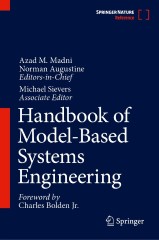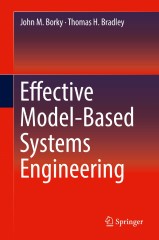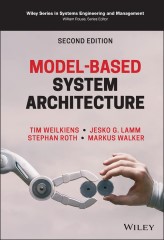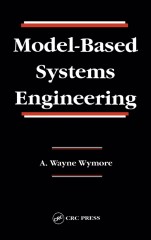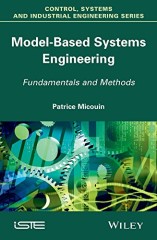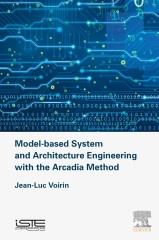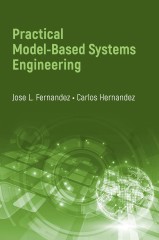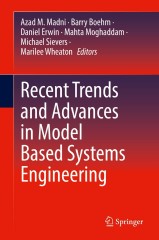Model-Based Systems Engineering (MBSE) stands as a cornerstone in modern systems engineering, revolutionizing the way complex systems are conceptualized, designed, and managed. In a rapidly evolving technological landscape, the choice of educational resources becomes paramount for professionals and enthusiasts alike seeking to grasp the intricacies of MBSE.
This article endeavors to navigate this terrain by offering insightful reviews of top MBSE books. Understanding the pivotal role of literature in shaping understanding, we aim to aid readers in making informed decisions, ensuring they embark on their MBSE journey equipped with the most valuable resources available.
From introductory texts demystifying fundamental concepts to advanced volumes exploring nuanced methodologies, our review covers a spectrum of expertise levels and learning preferences. By delving into the essence of each recommended book, we seek to empower readers in selecting the perfect companion to navigate the vast domain of Model-Based Systems Engineering.
The Agile Model-Based Systems Engineering Cookbook’s second edition focuses on providing practical workflows and ‘recipes’ to help MBSE practitioners effectively apply agile methodologies and model-based techniques. This edition, updated with the most popular tool for MBSE, Cameo MagicDraw Systems Modeler, engages readers in systems engineering workflows involving stakeholder needs, system requirements, architecture specification, and more, demonstrating how to integrate MBSE into an agile development process. Written by Dr. Bruce Powel Douglass, a renowned expert in MBSE, it promises to equip readers with the skills to manage system complexity effortlessly.
This book is tailored for systems engineers who wish to delve into model-based systems engineering within an agile framework. A basic understanding of SysML is required, but the book aims to further educate its readers on effectively implementing MBSE in varied contexts. Whether you’re encountering MBSE for the first time or seeking to enhance your existing skills, this guide will serve as a valuable resource for applying agile methods to systems engineering, ensuring coherent communication within teams, and coordinating across different engineering disciplines.
This handbook brings together diverse domains and technical competences of Model Based Systems Engineering (MBSE) into a single, comprehensive publication. The introductory chapter reviews the current state of practice, discusses the genesis of MBSE and makes the business case. Subsequent chapters present the role of ontologies and meta-models in capturing system interdependencies, reasoning about system behavior with design and operational constraints; the use of formal modeling in system (model) verification and validation; ontology-enabled integration of systems and system-of-systems; digital twin-enabled model-based testing; system model design synthesis; model-based tradespace exploration; design for reuse; human-system integration; and role of simulation and Internet-of-Things (IoT) within MBSE.
This book is specifically designed for individuals who want to develop a comprehensive understanding of Model Based Systems Engineering (MBSE). It serves as an essential guide for researchers, practitioners, students, and educators who require an authoritative reference to MBSE’s multidisciplinary, global perspective. Ideal for those interested in understanding MBSE, its applications, benefits, and deployment in diverse industries, the book also caters to educators wishing to teach both introductory and advanced systems engineering courses. Additionally, it addresses the roles of ontologies, meta-models, formal modeling, digital twins, and the integration of systems and system-of-systems within MBSE, making it a valuable resource for individuals looking to deepen their understanding of these topics.
Effective Model-Based Systems Engineering 1st ed. 2019 Edition by John M. Borky and Thomas H. Bradley is a comprehensive textbook that showcases a proven, mature Model-Based Systems Engineering (MBSE) methodology. With a focus on managing complexity and integrating design approaches, the book introduces MBSE as crucial in the Systems Engineering discipline.
This textbook is ideally suited for students and practitioners in systems architecture and Model-Based Systems Engineering. It serves both as an educational tool in relevant courses and a practical guide for professionals looking for a detailed presentation of MBSE principles and techniques. The book is designed to cater to a range of readers, from those new to MBSE to experienced engineers seeking to enhance their understanding and application of systems engineering principles. With exercises at the end of each chapter, it also provides valuable resources for readers who wish to reinforce their learning.
The second edition of Model-Based System Architecture dives deep into the practice of system architecture within organizations leaning on models to streamline the systems engineering process. This edition is meticulously updated to reflect on ISO 15288:2015 standards, emphasizing the evolving role of the system architect.
This book is a must-have for system architects and engineers looking to remain at the cutting edge of system architecting practices. It is equally suitable for students and researchers focused on the study of functional architectures. With conversations around Agile methodologies, the FAS Method, and architecture frameworks, combined with in-depth discussions on the soft skills required for system architecting, this comprehensive guide serves as an invaluable resource for both novices and seasoned practitioners alike.
Model-Based Systems Engineering, authored by A. Wayne Wymore, offers an in-depth exploration into the fundamental theories of model-based systems and the practical aspects of applying these theories to the design of real-world systems. This text presents crucial systems engineering terms, delves into the intricacies of discrete systems and their components, and thoroughly covers topics such as system coupling, the homomorphic relationship between systems, system modes, and the detailed structure of T3SD system requirements and design implications. The appendices enhance the reader’s understanding with a bibliography, detailed definitions, notation guides, and an index.
This Kindle Edition of Model-Based Systems Engineering is an essential resource for engineering students and an invaluable reference for seasoned engineers and scientists. Readers looking for a comprehensive guide to the principles of model-based systems engineering and its application in crafting effective and efficient real-world systems will find this book immensely beneficial. Its detailed exploration of both theoretical and practical aspects makes it ideal for those seeking to deepen their knowledge in systems engineering, whether they are just starting out or are experienced professionals in the field.
Model Based Systems Engineering: Fundamentals and Methods (Focus) 1st Edition by Patrice Micouin is a thorough exploration into the foundations and methodologies of model based system engineering (MBSE). The book addresses the growing complexity in system developments and leans heavily into the standards proposed by the INCOSE. Covering fundamental aspects of systems under review and tackling methodological issues, this volume proposes a systematic and integrated MBSE process that contrasts sharply with current practices.
This text is a must-have for systems engineers, academics, and professionals seeking a deeper understanding of model based system engineering. Particularly, those who are looking for structured and integrative approaches to MBSE will find invaluable insights. It serves as a robust resource for anyone involved in complex system developments wishing to adopt a method that is in line with INCOSE’s objectives. Furthermore, readers interested in the application of VHDL-AMS within the realm of MBSE will greatly benefit from the detailed annex.
Model-based System and Architecture Engineering with the Arcadia Method presents a deep dive into a system engineering method focused on model use, particularly emphasizing collaborative architecture definition, evaluation, and utilization. Authored by Jean-Luc Voirin, this first edition covers the intricacies of the Arcadia method and its application across various engineering challenges including requirements management, product lines, and system supervision alongside integration, verification, and validation. The book serves as both an introductory guide and a detailed reference on the Arcadia modeling language, illustrating its utility with practical examples and representative models.
Ideal for systems engineers and professionals involved in system and architecture engineering, this book is a must-read for those looking to master the Arcadia method. It targets both newcomers to model-based system engineering (MBSE) and seasoned practitioners, offering valuable insights into effective system architecture evaluation, collaboration among engineering domains, and the integration of hardware and software considerations. Readers interested in advancing their understanding and application of model-based techniques in system engineering contexts will find this resource invaluable.
Practical Model-Based Systems Engineering Illustrated Edition offers a thorough exploration into the Model-Based Systems Engineering (MBSE) methodology of Integrated Systems Engineering (ISE) and Pipelines of Processes in Object Oriented Architectures (PPOOA). It is designed for systems engineers and practitioners, offering analytic, design, and modeling tools for the development of complex products in areas such as aerospace, robotics, and energy. The book emphasizes synthesizing physical architectures, identifying and specifying system requirements, and applying ISE & PPOOA methodologies using Systems Modeling Language (SysML) constructs.
This book is tailor-made for systems engineers, both novices and experienced practitioners, looking to deepen their understanding of model-based systems engineering through practical examples and methodologies. It serves as an engaging guide to the history, theory, and applications of MBSE, making it a must-read for anyone interested in integrating MBSE into their work. Furthermore, stakeholders in aerospace, robotics, and energy domains, who are looking to apply MBSE methodologies for the development of complex products, will find this book invaluable.
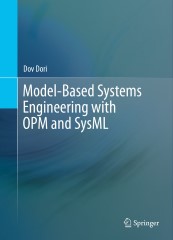
Model-Based Systems Engineering with OPM and SysML blends the pioneering Object-Process Methodology (OPM), newly standardized as ISO 19450, with the well-established OMG SysML to provide pivotal insights into complex system development across disciplines. Authored by Dov Dori, a leading voice in the field, this first edition serves as a profound academic resource, marrying theory with practical examples from industry to biology. It positions itself as an indispensable guide for architects, engineers, and professionals determined to master the art of system complexity through formal modeling.
This book is a must-have for systems architects, engineers across disciplines, executives, project managers, IT professionals, systems scientists, and engineering students. Its comprehensive coverage makes it ideal for those looking to deepen their understanding of model-based systems engineering (MBSE) using OPM and SysML. With a rich blend of theoretical insights and real-world applications, it is particularly suited for individuals aiming to architect multidisciplinary systems or seeking to enrich their conceptual modeling skills. Furthermore, Dov Dori’s extensive experience and contributions to the field add immense value for professionals and academics aspiring to excel in complex systems engineering.
Recent Trends and Advances in Model Based Systems Engineering is a comprehensive volume presenting papers from the 18th Conference on Systems Engineering Research (CSER). This book explores the evolution and the cutting-edge advancements in Model-Based Systems Engineering (MBSE), facilitated by digital engineering and the integration with other disciplines. Covering a broad spectrum of MBSE methods, simulation technologies, standards, and economic analyses, this collection addresses the complexities of 21st-century systems, highlighting the convergence with systems science and decision science. It provides a deep dive into the current research, methodologies, and applied practices within MBSE, making it a pivotal resource for both academia and industry practitioners.
This publication serves as an invaluable resource for graduate students, academics, and professionals in the field of systems engineering. Particularly, those involved or interested in the areas of model-based systems engineering, digital engineering, and the integration of systems engineering with other disciplines will find this book of immense value. It is also suited for researchers and practitioners looking for the latest advancements in MBSE research, including its application and convergence with digital engineering, systems science, and decision science. Whether you are seeking to expand your knowledge base, contribute to academic discourse, or apply cutting-edge MBSE practices in your work, this volume offers a wealth of information and insights.
Wrap Up
In conclusion, the world of Model-Based Systems Engineering (MBSE) offers boundless opportunities for professionals and enthusiasts alike to delve into the intricate realm of systems design and management. As we’ve explored throughout this article, the choice of the right educational resources, particularly books, is paramount in shaping one’s understanding and mastery of MBSE principles.
By providing insightful reviews and recommendations, we’ve aimed to equip you with the necessary guidance to make informed decisions when selecting MBSE books. Whether you’re a novice eager to grasp foundational concepts or a seasoned practitioner seeking advanced methodologies, there’s a wealth of resources available to cater to your needs.
We encourage you to take the next step in your MBSE journey by exploring the recommended books and embarking on a path of continuous learning and growth. Your feedback, experiences, and additional book recommendations are invaluable contributions to our community, so please feel free to share them in the comments below.
Thank you for joining us on this exploration of MBSE literature. Should you have any further inquiries or wish to continue the conversation, don’t hesitate to reach out. Here’s to your success in unlocking the full potential of Model-Based Systems Engineering!



